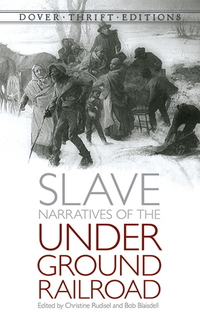
Reviewed for NetGalley
* * * *
It is hard to imagine that it was only 150 years or so ago that the institution of slavery existed in this country. That history is a testament to the depths of evil to which mankind can descend—and it is a tale that applies to most of history in most of the world. Thus, it is an even greater testament when mankind struggles its way forward. The battle ahead in this country was taken on when the eyes of those of the larger community were opened to the truth. Once done, they sought change and prepared to pay with their lives if necessary to achieve it.
While concentrating on sins of the past does not change nor correct things, a study of those events can serve to see that such evils are not repeated. Thus, I have spent some time over the years reading the stories of freed slaves and of those who assisted them. My favorite of all time is Booker T. Washington’s account in Up From Slavery. One of the items on my “bucket list” is to go to Tuskegee Institute one day. Washington’s insight all those years ago, still serves us well today. Indeed, I think it should be on everyone’s required reading list. But for the present, I address those stories in Slave Narratives of the Under Ground Railroad.
The editors did a nice job of collecting a variety of stories, in some cases told by the former slaves themselves, and in others, by those who assisted them in their fight for freedom. It is shocking to read an account of a man willing to have himself shipped to a port in the free north, of a woman who carried her child across broken chunks of ice on a river toward freedom, and more. It is also important to understand the power of government, of statues and court rulings—power that when exercised imposes the will of elected officials on the lives of all. (Remember that on election day.) Such was the case with the The Fugitive Slave Act of 1850, well discussed in the text. But what I took out of these stories that I wish to carry with me goes beyond the terrors slaves experienced. It goes to the kindness they found in others. Many risked their lives and fortunes to escape their chains, and many others to end the institution of slavery in this country. Their investments were well made and we honor them when we learn of their exploits.
* * * *
It is hard to imagine that it was only 150 years or so ago that the institution of slavery existed in this country. That history is a testament to the depths of evil to which mankind can descend—and it is a tale that applies to most of history in most of the world. Thus, it is an even greater testament when mankind struggles its way forward. The battle ahead in this country was taken on when the eyes of those of the larger community were opened to the truth. Once done, they sought change and prepared to pay with their lives if necessary to achieve it.
While concentrating on sins of the past does not change nor correct things, a study of those events can serve to see that such evils are not repeated. Thus, I have spent some time over the years reading the stories of freed slaves and of those who assisted them. My favorite of all time is Booker T. Washington’s account in Up From Slavery. One of the items on my “bucket list” is to go to Tuskegee Institute one day. Washington’s insight all those years ago, still serves us well today. Indeed, I think it should be on everyone’s required reading list. But for the present, I address those stories in Slave Narratives of the Under Ground Railroad.
The editors did a nice job of collecting a variety of stories, in some cases told by the former slaves themselves, and in others, by those who assisted them in their fight for freedom. It is shocking to read an account of a man willing to have himself shipped to a port in the free north, of a woman who carried her child across broken chunks of ice on a river toward freedom, and more. It is also important to understand the power of government, of statues and court rulings—power that when exercised imposes the will of elected officials on the lives of all. (Remember that on election day.) Such was the case with the The Fugitive Slave Act of 1850, well discussed in the text. But what I took out of these stories that I wish to carry with me goes beyond the terrors slaves experienced. It goes to the kindness they found in others. Many risked their lives and fortunes to escape their chains, and many others to end the institution of slavery in this country. Their investments were well made and we honor them when we learn of their exploits.


